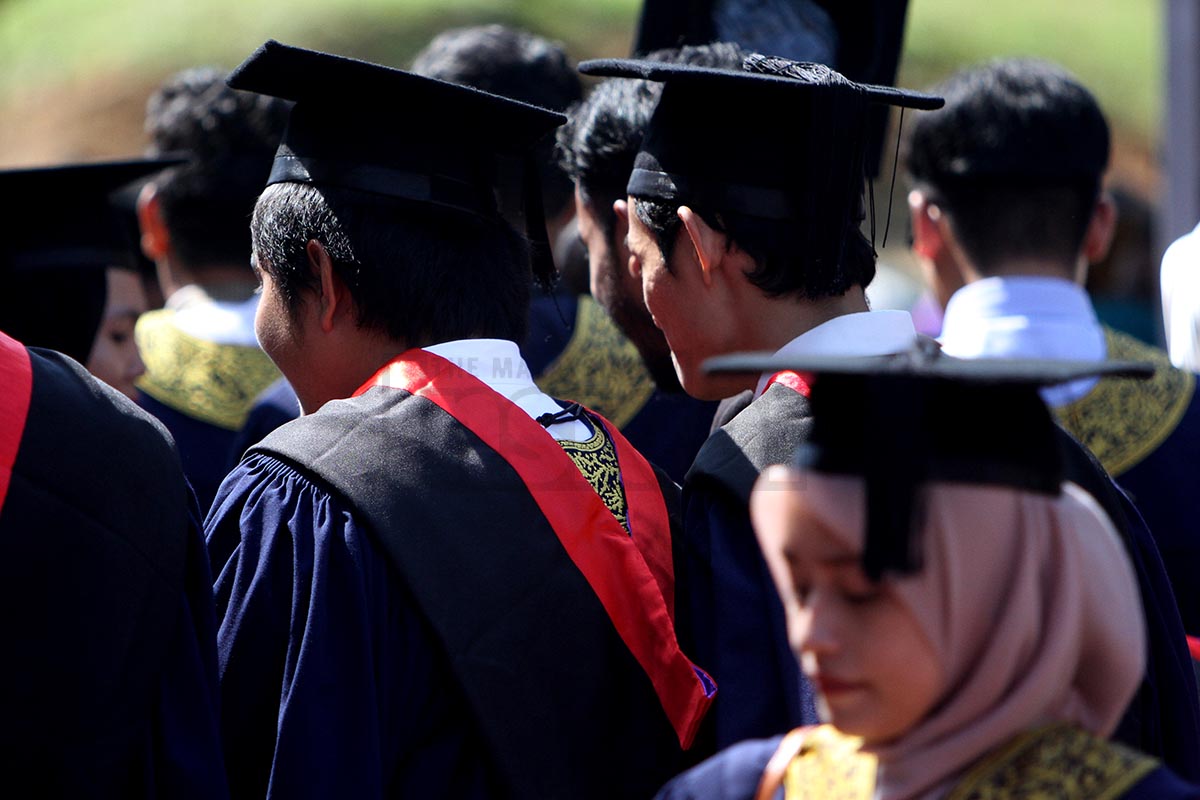
Malaysian graduates face job interview jitters due to weak English skills
Despite years of studying in the English medium, some participants of the 1Malaysia Training Scheme (SL1M) find it inadequate in preparing them for the real world.
Zati Aqmar Zahari, 28, said she struggled to introduce herself in English at job interviews.
The Universiti Teknologi Malaysia (UTM) graduate told The Malaysian Insider that at one point, she attended about 10 job interviews, yet none of the companies got back to her.
"Most interviews are carried out in English, and when they asked me to introduce myself, I found it very difficult to do so because I think in Bahasa, so I take time to translate my thoughts into English," she said.
Zati, who majored in Computer Sciences, said while her studies were conducted in English, students were not taught how to prepare for job interviews.
"My self-confidence and communications were really low, because at the time of the interview I had just graduated and had no idea what employers were looking for."
Zati enrolled in SL1M, a programme organised by the Economic Planning Unit (EPU) under the Prime Minister's Department that teaches soft skills.
The programme places graduates in participating government-linked companies (GLC) and private firms where they develop language and communication skills.
SL1M general secretariat Norashikin Datuk Ismail told The Malaysian Insider that the programme, launched in June 2011, was targeted at unemployed graduates, particularly those from low income families or rural areas, with at least a bachelor's degree.
Norashikin said since its launch, 70,000 graduates have succeeded in securing jobs after going through the programme. She declined, however, to comment on the failure rate when asked, saying such cases were few.
SL1M participants receive a monthly allowance of RM1,000 to RM1,500 throughout the programme, depending on the company they are registered with.
After completing her training, Zati found a job as a credit management and collection manager in Telekom Malaysia Berhad (TM), and has been working there for the past four years.
Unprepared for job interviews
Like Zati, another SL1M participant, Nur Azimah Che Nazir, 25, said she had low confidence when speaking.
The Environmental Health and Safety degree holder said while she had carried out many presentation-based assignments in her alma mater, Universiti Teknologi Mara (UiTM), going for job interviews was something entirely different.
"I don't have any confidence when speaking, especially in terms of voicing my opinions. I become scared that what I say may be wrong.
"In university, we did our presentations in front of our friends, who we already know. So we're not scared. But in interviews, we face complete strangers," said Azimah.
After her SL1M training ended two months ago, Azimah was hired as an executive director at Intelsec Sdn Bhd, a subsidiary of TM.
She said universities should teach students how to prepare for job interviews, to help bolster their confidence.
Two other former SL1M trainees, B. Basker and Faizul Azuan Baharin, said they faced problems fielding interview questions, and were unable to meet the needs of employers.
Basker said he was too afraid and anxious to communicate when he faced his first job interviews.
"But now I have overcome this," he said.
Faizul said he was unemployed for six months after graduating, as most employers were looking for job applicants with at least three to five years' experience.
"I had just graduated that time, so of course I had no experience," he said.
SL1M's Norashikin said they planned to rope in more GLCs and big firms into the programme.
Non-Bumi firms reluctant
Norashikin, however, said most non-Bumiputera firms were not interested in graduates who were unable to communicate in English, as training them would cost time and money.
"Most non-Bumiputera firms don't want to take in Bumiputera graduates. And most who are unemployed are Malays.
"We want to encourage more companies, whether they are SMEs (small and medium enterprises) or big firms, to join SL1M. The more, the better," said Norashikin.
She said the government could not force non-Bumiputera companies to take part in SL1M, since the private firms were required to pay for the cost of the programme themselves, as well as supply the officers to train participants.
As such, many companies participating in the programme are government-linked.
The 22 firms involved are are Affin Holdings Berhad, BIMB Holdings Berhad, Boustead Holdings Berhad, Celcom Axiata Berhad, Chemical Company of Malaysia Berhad, CIMB Group Holdings Berhad, Khazanah Nasional Berhad, Employees Provident Fund (EPF), Armed Forces Fund Board (LTAT), Pilgrims Fund Board, Malayan Banking Berhad, Malaysia Airlines Berhad, Malaysia Airports Holdings Berhad, Malaysia Building Society Berhad, Malaysian Resources Corporation Berhad, NCB Holdings Berhad, Sime Darby Berhad, Telekom Malaysia Berhad, Tenaga Nasional Berhad, TH Plantations Berhad, UEM Group Bhd and UMW Holdings Berhad.
Please confirm If you want to unregister
You have been unregistered from gradlink







